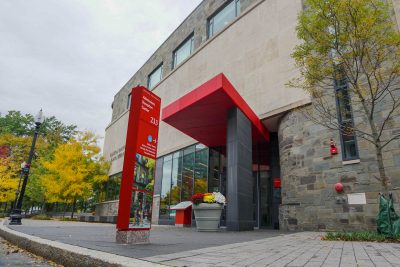
Harvard University will go to court Monday to defend itself against allegations of racially discriminatory admissions practices.
The lawsuit, which was filed by nonprofit Students for Fair Admissions, accuses Harvard of discriminating against Asian-American applicants in its admissions process, according to the Students for Fair Admissions website.
The lawsuit has sparked a national conversation on affirmative action, prompting pieces on the controversial practice in publications such as The New York Times, The Boston Globe and The Los Angeles Times.
Boston University’s Equal Opportunity/Affirmative Action policy states that the university prohibits discrimination based on race, sex and other factors, but that “non-discrimination does not ensure that equal opportunity is a reality.”
In turn, the policy states that the university will take affirmative action to extend equal opportunities to all applicants and students.
Of BU’s class of 2022, 17.6 percent identify as Asian-American, 10.2 percent identify as Hispanic and 6.3 percent identify as African-American, according to statistics published by the university.
BU strives to be inclusive in its admissions practices, BU spokesperson Colin Riley said. BU’s class of 2022 is not only a “very strong class,” he said, but also one of the most racially diverse in the university’s history.
“Diversity is more than just underrepresented minorities, people of different background, people from around the world,” Riley said. “So you may be sitting next to someone whose personal experience and culture growing up will provide additional perspective in the classroom.”
Riley said BU Admissions looks holistically at a student, and, through materials such as transcripts, recommendation letters and essays, considers all areas from academic achievement to character endorsements.
“We review applications from prospective students is in a way of looking at a student in their entirety,” Riley said. “We’re looking to see what an applicant will contribute to their application and the application of others.”
Ben Lahner, a senior in the College of Engineering, said he grew up in a predominantly white suburb of Minnesota and did not think much about the need for diversity before coming to BU. This upbringing initially made him feel negatively about affirmative action, he said, but his opinion changed after coming to BU.
“When I was first applying to schools, I was also a little mad about it,” Lahner said. “I felt robbed and cheated. But now, I’ve been here at BU for fours years and seen the diversity here, and I’ve learned so much from it. I just can’t imagine going to school without this diversity. The diversity itself has made my college experience worth it.”
Madi Kodak, a junior in the Wheelock College of Education and Human Development, said she believes affirmative action is a powerful tool to break cyclical inequalities, but that many view it negatively out of ignorance.
“I think, a lot of times, it’s skewed and it’s given a very negative connotation,” Kodak said. “Especially for generally white, middle-class, upper-class college students and their families who feel they’re being kind of undercut by affirmative action, but I think a lot of their opinion comes out of ignorance.”
Kodak said she thinks the diversity that results from affirmative action is beneficial to university students.
“If you’re going to school with the same people you went to school with and [grew] up with, you’re never going to have your ideas challenged, and you’re never going to really see life experiences from someone else’s perspective,” she said.
Wheelock Dean David Chard, the former president of Wheelock College before the BU-Wheelock merger, said Wheelock College tried to encourage diversity in its admissions by looking at “traditional bias areas.”
“We felt that the professions we were preparing for, teaching and social work, were underserved by students of color,” Chard said.
Ultimately, Chard said Wheelock College ultimately became a Scholastic Aptitude Test-optional institution, focusing on grade point average as a better indicator of academic performance.
Mykell Fisher, a sophomore in the Sargent College of Health and Rehabilitation Sciences, said that she thinks giving underrepresented groups a better chance to get into universities is a positive premise, but that the execution of affirmative action policies can lead to division between minority students and others.
“I think that when people think of affirmative action, they think that the minorities that the policy serves, they don’t have to work as hard,” Fisher said. “And I think that the people who benefit from affirmative action kind of internalize that and feel like they’re not as deserving of the position that they’re in.”
As a black woman, Fisher said she experiences this firsthand.
“I think that my success should be able to stand on its own,” Fisher said. “So it’s kind of like this dissonance about whether I’m here because I’m black or because I earned it.”



















































































































